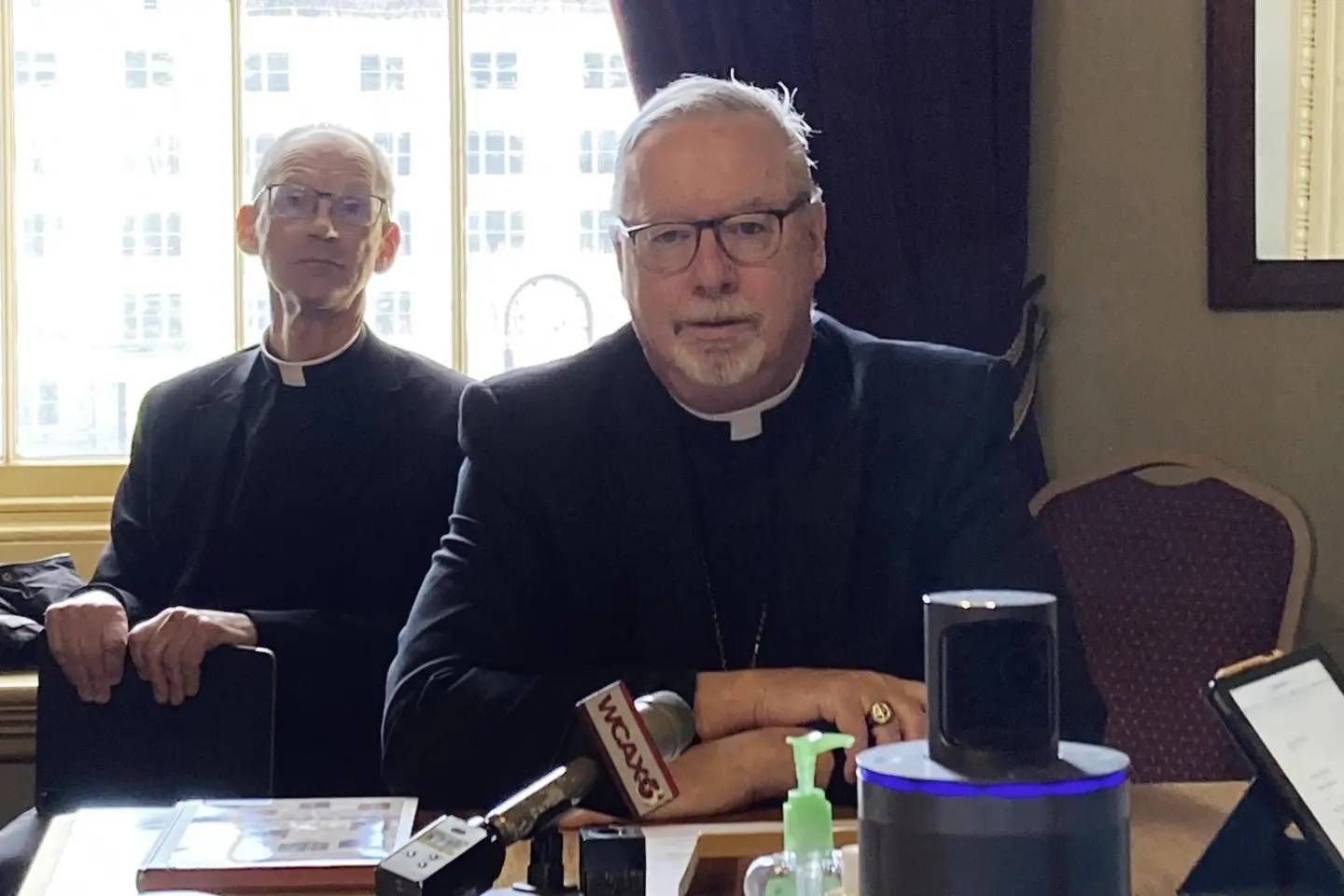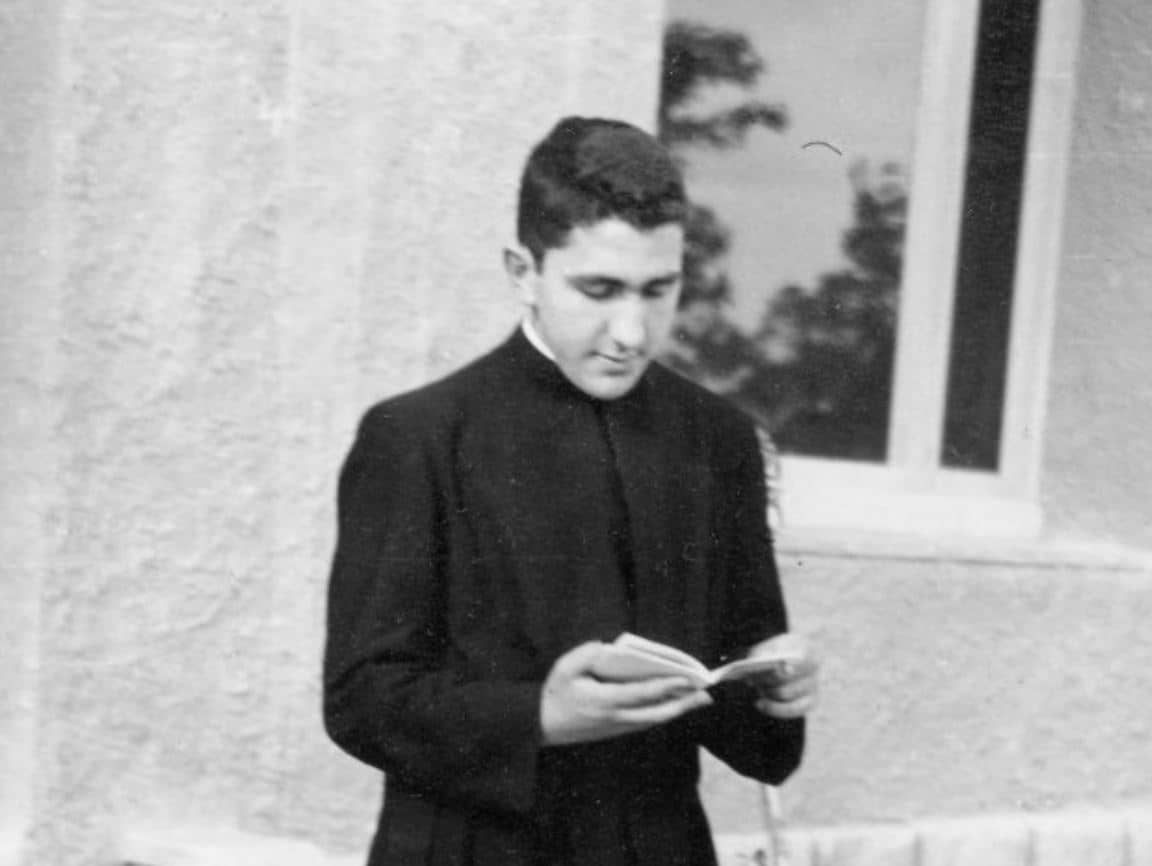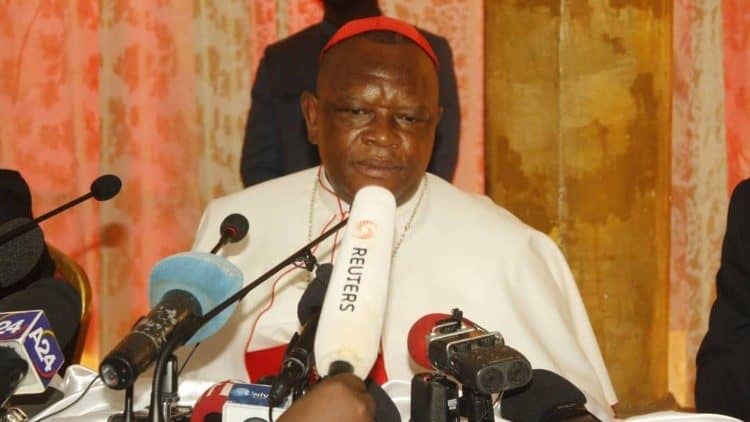Pope Francis is hugely popular for his humility and care for people — he has captured our imagination by washing the feet of prisoners, trading in the Mercedes popemobile for a Hyundai, calling people who have contacted his office, and posting often on Twitter.
In addition to these actions of simplicity that demonstrate that the Roman Catholic Church should be a Church for the poor, he has said things that have been surprising to many, from statements like “Who am I to judge?” to helping broker international peace and wrestling with the moral questions connected to the environment in his encyclical, “Laudato Si’.”
Like me, you have probably watched Pope Francis’ actions and words and the media coverage around them with interest but with a bit of confusion, too. People keep speculating on what Pope Francis really means.
A lot of people claim to know what the Pope means. I see proof of this all of the time in the letters sent to me as director of content and programming for the World Meeting of Families (WMOF) in Philadelphia. The letters say, in effect, “Pope Francis would want the WMOF to address (insert any one of dozens of issues here).”
Amid all the wild speculation that surround statements made by Pope Francis, how can we really know what he intends to convey? What are his priorities? What is he trying to accomplish? What does Pope Francis care about?
I wondered the same. But then a Vatican consultant advising me on the WMOF said something interesting. “Here in the US, you all wonder about Pope Francis, right? There seems to be a lot of contrasting statements about him here.” I said yes. But I was thinking, “Huh? You guys in the Vatican don’t wonder about him, too?” What he said next has reverberated in my mind ever since: “It is because you don’t realize that he is a priest first. He is a parish pastor. You in the United States might think of him as the leader of a large institution, but he does not think of himself that way. He is not worried about big doctrinal statements, but about caring for his people.”
When he said this, an image of my favorite parish priest popped into my mind, along with all of the attendant feelings of warmth, support, and being loved. I have been lucky enough to have a priest that cared for me and my family through the very difficult struggles of my husband’s serious illness, the loss of a child, and much more. So in thinking of the idea of a priest, my heart flooded with love — and suddenly, I saw the Holy Father’s statements and actions in a new light. Of course! Pope Francis sees himself as supporting individuals through the joys and challenges of daily life, as actually walking with each of us in our griefs and joys.
We think of him as running the worldwide Roman Catholic Church, an organization with 1.2 billion members and very focused moral emphases, but he does not see himself as an administrator or a scholar. Rather, in his mind he is a priest with a very large parish. Pope Francis sees himself as accompanying us and also helping us learn how to support each other. Priests really can help build a strong parish community in their particular church, and I see that happening with Pope Francis in the larger Church. Judging by the global political actions he has undertaken, his understanding of the parish he shepherds is not just Catholics, but everyone.
The way to understand the pontificate of Pope Francis is to look at his ideas of what it means to be a pastor. Or, even better, to talk with someone who knows him as a pastor. Natalia Dominguez Buckley, a native of Argentina who now lives in Philadelphia, has a great story to tell — Pope Francis, then Jorge Mario Bergoglio, said Mass in her parish every month and was very involved. Natalia says that he “was a priest with great passion for life and people.” She also followed his career when Father Bergoglio became Archbishop Bergoglio, then Cardinal Bergoglio.
Natalia’s words sketch a picture of Jorge Bergoglio that taught me a lot about our current pope. I’m sure that these emphases will ring true with what you keep hearing about the Holy Father, too, and it helps add some context to all of the diverse statements that we hear from him.
He was practical, she tells us, very down-to-earth and connected to the needs of the people.
“He used to offer a special Mass every year on Aug. 7 to celebrate the feast day of St. Cajetan, patron of jobseekers and bread for the Argentine people,” she said. This Mass was large and very meaningful to the Argentinians. Bergoglio continued to offer this Mass when he became archbishop in 1998, and he would, according to Natalia, “celebrate with pilgrims at the shrine of the saint by giving bread and mate cocido (a traditional tea drink in Argentina) and clothing to the thousands of followers that attended the feast.”
Pope Francis was, and is, prayerful and humble. He emphasizes simplicity. Even as the size of “his people” grew as he became archbishop and then cardinal, he visited the slums of Buenos Aires, called Villas Miserias (“neighborhoods of misery”) where people, mostly immigrants from Paraguay, lived in serious poverty.
Bergoglio also reached out to the Paraguayan poor by living and working in La Parroquia Virgen de Caacupé (a church dedicated to the Paraguayan patroness, the Virgin of Caacupé). While there, he would provide the sacraments and turn the parish, according to Natalia, “into a comprehensive social service center by fighting drugs and violence, educating the young and taking care of the old ones, providing job training and even community radio to give the people a voice.” His message to those who were suffering, Natalia says, was, “Even if politicians and the economy have forgotten about them, the Church has not.”
He even did the “everyday” administrative work of priests and bishops with special care for the people involved. For example, Natalia recounts a crisis she had the week before her wedding, when her marriage paperwork was in Argentina, still on Archbishop Bergoglio’s desk. She pled her case and he hurriedly completed and approved the necessary paperwork.
Here is the secret to Pope Francis: He doesn’t have a secret agenda for us to discover. He truly loves us, and he sees himself as supporting and guiding his global parish, caring for people in their struggles and joys. When the Holy Father comes to the United States in less than a month, we will all celebrate with him, those of us who will be with him in person at the large public events in Philadelphia — the Festival of Families and the papal Mass — and those of us who will watch from afar. And we will all learn something when he talks to the United Nations, the US Congress, and the “regular” people, the families from each continent of the world who will address him at the Festival of Families.
Because those people represent all of us, and Pope Francis’ words of wisdom will be something that can help every single one of us to grow closer to God, each other, and all of creation.
Afterward, we will all speculate on what Pope Francis really meant, arguing as we try to determine where he stands on those issues closest to our hearts. At the root of all of this will be the fact that we care about what he said … because we will know that he cares about us first.
Mary Beth Yount is director of content and programming for the World Meeting of Families — Philadelphia 2015 and assistant professor of theology at Neumann University in Aston, Penn.













